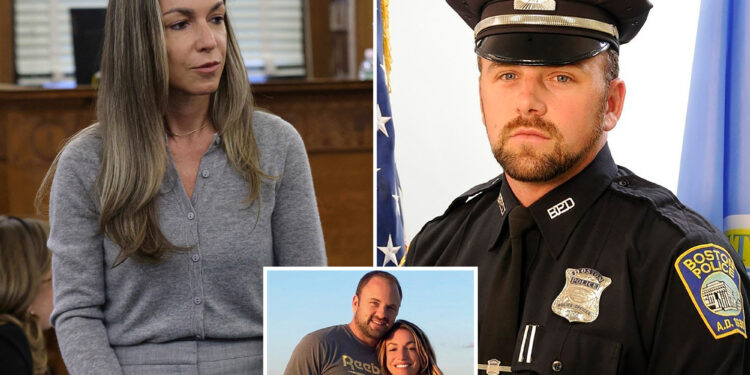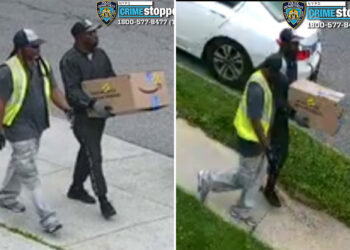
Lawyers for Massachusetts murder suspect Karen Read are asking Supreme Court Justice Ketanji Brown Jackson to put her trial on hold until after the nation’s highest court considers her petition to review a lower court’s decision not to toss out two of the three charges she is facing.
Read filed a writ of certiorari this week after an appellate court denied her request to have charges of murder and fleeing the scene dropped from her second trial after the first ended with a hung jury last year.
A retrial is already underway, with 12 jurors selected as of the end of the day Tuesday, a court spokesperson told Fox News Digital.
Another four are required as alternates before opening statements are made.
The petition went to Jackson because she is the justice responsible for the U.S. District of Massachusetts, and she can decide on it herself or refer the matter to the entire Supreme Court.
According to the court’s website, it receives about 7,000 writs of certiorari petitions a year and takes up between 100 and 150.
Read is accused of backing her Lexus SUV into her boyfriend, John O’Keefe, a Boston police officer, causing a head injury and leaving him to die on the ground in a blizzard on Jan. 29, 2022.
She has denied the allegations and argued that someone else beat him and left him in the cold.
Read’s lawyers argue they were told by multiple jurors after the July 1 mistrial that the jury had unanimously found her not guilty of those two charges but could not reach an agreement on the third, manslaughter.
But their decisions were never announced in court.
So Read’s team is asking the Supreme Court to rule on whether a “unanimous but unannounced” decision is sufficient to trigger Fifth Amendment protections and whether Read should receive a post-trial hearing on the matter.
If she were to be found not guilty of murder and then made to stand trial again, it amounts to double jeopardy, which is banned by the Bill of Rights, her lawyers argued.
After a mistrial, a retrial can normally proceed, but Read’s lawyers argue the unique circumstances in her case place her under double jeopardy on the two charges jurors agreed on but did not announce.
“Usually retrials don’t go well, that’s why a hung jury is a win for defendants,” said David Gelman, a Philadelphia-area defense attorney who has been following the matter. “Since the last case, you have an officer involved who has been terminated for bad conduct, evidence will be suppressed that would benefit the prosecutor, and there is more media attention that makes Read look better.”
Experts also see the murder charge in a hit-and-run case as a scare tactic designed to pressure the defense into accepting a plea deal.
After going to trial once, Read has shown she’s ready to fight the charges in court, and she has always maintained her innocence.
“I would’ve thought that [special prosecutor Hank] Brennan would’ve gone in at the beginning and said, ‘I’m not going to do the murder charge,’” said Grace Edwards, a Massachusetts defense attorney who is following the case.
Read faces life in prison if convicted of second-degree murder at her second trial, which began last week.



























